Iran releases Austrian citizen after 2022 arrest
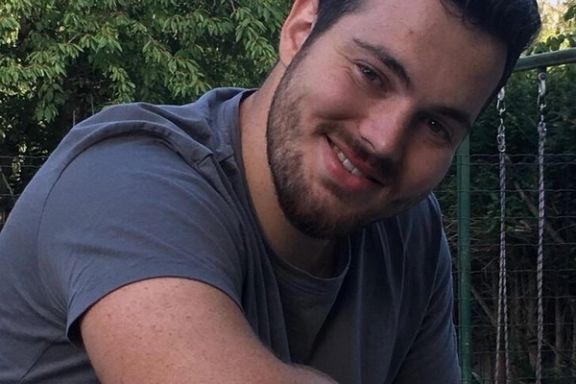
Iranian authorities have released Austrian citizen Christian Weber, jailed in Iran amid the 2022 protests, and handed over to Austria's ambassador in Tehran.

Iranian authorities have released Austrian citizen Christian Weber, jailed in Iran amid the 2022 protests, and handed over to Austria's ambassador in Tehran.
The news was announced by Iran's judiciary news agency, Mizan, on Tuesday, reporting that Weber was released in a gesture of “Islamic mercy” without specifying the crime for which he was imprisoned.
But, according to Austrian media, citing Foreign Minister Alexander Schallenberg in December of last year, Weber was "abducted and detained" on August 25, 2022, shortly after crossing into Iran, and taken to a state police prison in Urumia in northern Iran.
Initial allegations of espionage, reportedly based on information from the Somali secret service, were later proven false.
Despite the dropped charges, Weber remained in custody for nearly one and a half years, including time at Maku prison in northern Iran. Reports indicated he was subsequently charged with carrying dangerous weapons.
The conditions of Weber’s detention had drawn international criticism against Iran which continues its policy of diplomatic hostage taking. A petition signed by over 700 individuals in Austria advocating for his release detailed the harsh circumstances Weber endured including being confined in a room with 48 other prisoners, without a mattress for the first six months, and suffering from persistent back pain.
It is unknown how many foreign citizens or dual-nationals are imprisoned in Iran. Last year, five US citizens were released in return for the release of $6 billion in Iranian frozen funds, leading to major criticism of the Biden administration for emboldening the Islamic Republic.
Weber's release comes on the heels of the anniversary of Mahsa Amini's death on September 16.
Nationwide protests erupted following the death of the 22-year-old Kurdish-Iranian woman, who died in custody after allegedly violating Iran's Islamic dress code.
Months of protests followed, marking one of the most significant challenges to the Islamic Republic's clerical leadership in decades.
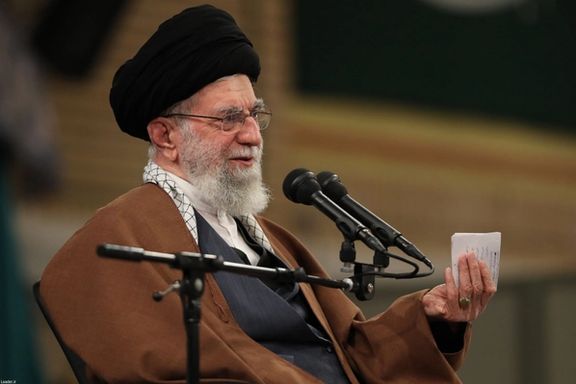
The Indian government criticized Iran’s Supreme Leader Ali Khamenei over his remarks about the maltreatment of Muslims in India on Monday, reminding him of his government’s treatment of minorities in Iran.
“We strongly deplore the comments made regarding minorities in India by the Supreme Leader of Iran,” India’s Ministry of External Affairs said in a statement. “These are misinformed and unacceptable. Countries commenting on minorities are advised to look at their own record before making any observations about others.”
The statement appears to be a direct response to a post on Khamenei’s official account on X (formerly Twitter) a few hours earlier. “The enemies of Islam have always tried to make us indifferent with regard to our shared identity as an Islamic Ummah,” the post read. “We cannot consider ourselves to be Muslims if we are oblivious to the suffering that a Muslim is enduring in Myanmar, Gaza, India, or any other place.”
India and Iran have occasionally clashed over Muslim rights, although such instances are relatively rare and the two countries maintain positive relations.
In 2019, Khamenei stirred diplomatic ripples when he urged the Indian government to adopt a “just” approach toward Kashmir, which is a majority-Muslim region disputed by India and Pakistan.
A year later, Iran’s former foreign minister Javad Zarif lamented the violence against Muslims during the Delhi riots. In response, India summoned the Iranian ambassador to convey dismay.
India is home to one of the largest Muslim populations in the world. The current Indian government led by the BJP (Bharatiya Janata Party), has often drawn criticism from Muslim countries over treatment of its Muslim minority, most notably in 2019 when it introduced the Citizenship Amendment Act (CAA), granting fast-track citizenship to refugees from neighboring countries excluding Muslims.
The Islamic Republic, based on Shia Islam, is a major violator of minorities rights, especially non-Muslim religious communities such as Baha'is and smaller offshoots of the Islamic faith. Christian converts also are harassed and imprisoned. Even Iran's Sunnis are heavily discriminated against, including not being allowed to build their own mosques in major cities.
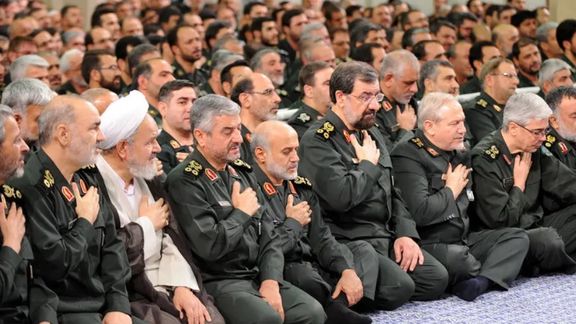
The Canadian government has expanded its ban on senior Iranian officials from entering the country, expanding a measure that now blocks tens of thousands of individuals tied to the Islamic Republic.
Announced on Sunday by Public Safety Minister Dominic LeBlanc, the move renders any senior official who has served in Iran's government since June 23 2003 inadmissible to the country. The extension builds on a previous ban introduced in November 2022, which had initially denied entry to officials dating back to 2019.
The significance of the new cutoff is symbolic, marking the arrest of Zahra Kazemi, an Iranian-Canadian photojournalist detained by the Iranian government in Tehran.
After nearly three weeks of imprisonment, Kazemi died in hospital after being subjected to torture and sexual assault.
“We are sending a strong message that those involved in terrorism, human rights violations, and atrocities are not welcome here,” LeBlanc stated. “Canada will always stand up for human rights and fight for justice, at home and around the world.”
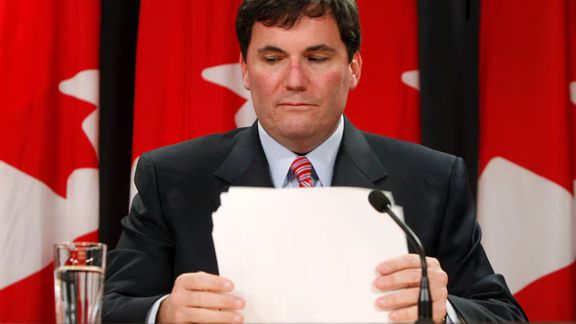
The announcement comes on the eve of the second anniversary of the death of 22-year-old Mahsa Amini, whose killing at the hands of Iran’s morality police triggered mass protests. She was arrested for the inappropriate wearing of her headscarf.
The expanded ban received praise from human rights advocates. Kourosh Doustshenas, a spokesperson for the Association of Families of Flight PS752 Victims, commended the government's decision.
Flight PS752, shot down by the Islamic Revolutionary Guard Corps (IRGC) in January 2020, killed 176 passengers, including 55 Canadian citizens. "Justice for Zahra Kazemi and so many others is long overdue," Doustshenas said in the wake of the news.
In June, following years of pressure from Iranian-Canadians and opposition parties, the Canadian government listed the IRGC as a terrorist organization under the Criminal Code. The IRGC, Iran's military arm, has long been implicated in human rights abuses, including the suppression of protests, crackdowns on dissidents, and interference in the Middle East.
Since Ottawa’s initial designation of the Iranian government as a violator of human rights in 2022, Canada has already revoked 82 visas and deemed 15 individuals inadmissible, including two senior officials who were ordered deported. The expanded measure will likely target many more, although the Canada Border Services Agency has yet to disclose how many additional officials will face repercussions.
The recent move follows incidents in which high-ranking Iranian figures, such as Morteza Talaei — the police chief during Zahra Kazemi's torture — were found living freely in Canada, sparking outrage among Canadians and human rights organizations.
With the latest decision, Canada continues to align itself with the Woman, Life, Freedom movement and signal its dedication to human rights.
Over 550 protesters were killed by Iran's state security forces during the 2022 uprising which has posed the biggest threat to Iran's government since the founding of the Islamic Republic in 1979.
Thousands more Iranians have been arrested and hundreds more executed as the government struggles to quash dissent.
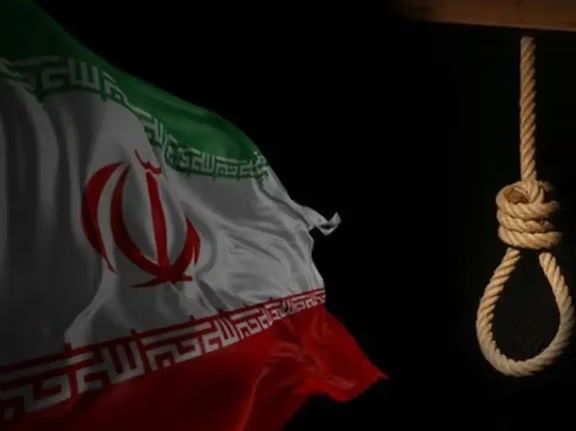
At least 1,425 people have been executed in Iran since Mahsa Amini’s death in custody sparked a nationwide protest movement in September 2022, a new report by Norway-based Iran Human Rights Organization said.
Nearly twice as many executions were carried out in the two years following the outbreak of the protests compared to the same period before, according to the Monday report.
The most significant increase was for alleged drug-related crimes, the report added, for which capital punishment jumped 163% from 302 cases to 796.
“The death penalty is the Islamic Republic’s most crucial tool for instilling fear in society, aiming to stifle dissent and preventing future protests," IHR Director Mahmood Amiry-Moghaddam was quoted as saying.
"Drug-related offenders, often denied fair trials by Revolutionary Courts, are the regime’s expendable victims in this relentless cycle of repression."
Iran conducted the most executions of any country in the world besides China last year, Amnesty International said in a report in May, adding that nearly 75% of all executions worldwide in 2023 outside China were in Iran.
Foreign ministers from the United States, United Kingdom, Australia, Canada and New Zealand condemned the uptick in death sentences in a joint statement on Monday.
“The recent surge in executions that have largely occurred without fair trials has been shocking, and we urge the Iranian government to cease its human rights violations now.”
Other harsh sentences like flogging have also been handed down in greater numbers according to another rights group.
Over 100 sentences of flogging have been issued in relation to the protests, the U.S.-based Abdorrahman Boroumand Center for Iran's Human Rights said in a report on Monday, with at least two being conducted on women.
"These inhumane sentences are being carried out despite Article 5 of the Universal Declaration of Human Rights - an agreement that Iran has both accepted and ratified -which states, 'No one shall be subjected to torture or to cruel, inhuman or degrading treatment or punishment'," the rights group said in a statement.
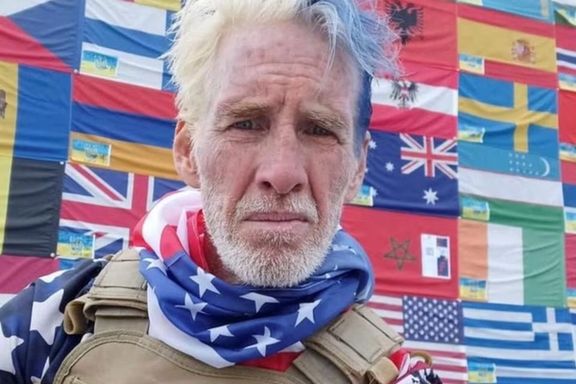
An American man arrested for a suspected assassination attempt on Donald Trump on Sunday wrote in a self-published book last year that Iran had a right to kill the former US president after he pulled out of the Iran nuclear deal.
“I must take part of the blame for the retarded child that we elected for our next president that ended up being brain-less,” wrote Ryan Wesley Routh, a Hawaii resident who said he had voted for Trump in 2016.
“But I am man enough to say that I misjudged and made a terrible mistake and Iran I apologize. You are free to assassinate Trump as well as me for that error in judgment and the dismantling of the deal”, he added, according to screenshots carried by media outlets.
No copies of the book were readily accessible or available for purchase as of Monday.
The nuclear deal or Joint Comprehensive Plan of Action (JCPOA) was an agreement among Iran and the five permanent members of the UN Security Council and Germany spearheaded by Trump’s predecessor Barack Obama in 2015.
The Trump administration’s unilaterally withdrawal effectively scuppered the deal.
“I would like to celebrate the amazing work of John Kerry that very humbly and humanly handled the Iran deal which elated me and the whole of the world,” Routh wrote in his book, referring to the U.S. Secretary of State at the time.
U.S. authorities are scrutinizing Routh’s digital footprint in the wake of his arrest, including his book “Ukraine's Unwinnable War: The Fatal Flaw of Democracy, World Abandonment and the Global Citizen—Taiwan, Afghanistan, North Korea and the End of Humanity.”
Praise for Iranians
In his book which rambles and abounds in grammatical errors, Routh praises Iranians for protesting against their rulers’ “brutality”, in an apparent reference to a popular uprising following the death of a young woman in the custody of Iranian morality police in 2022.
“As I look at them they are exactly the same as citizens of the US and other civilians around the globe that protest injustice and it is a wonderful and honorable thing to see those standing up for their fellowman and unjust abuse,” Routh wrote. “I want to be there in the streets with the Iranians with banners and posters and screaming for justice. I would also like to be protesting in those streets against US sanctions.”
Routh was quoted in a New York Times article in 2023 saying he wanted to recruit ex-Afghan soldiers from Iran and Pakistan and move them to Ukraine.
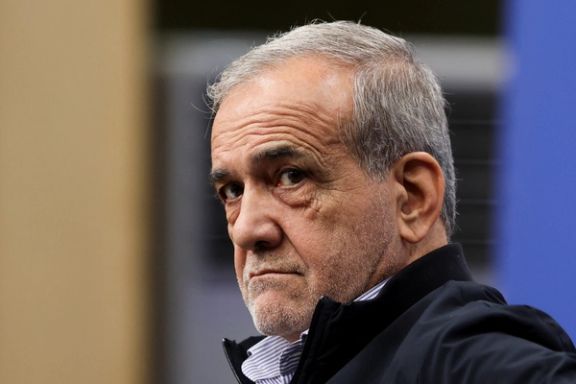
The immediate reaction on social media to President Masoud Pezeshkian’s belated press conference on Monday was mixed, highlighting the deep divide within Iranian society.
Some netizens have viewed the two-and-a-half-hour press conference as a breath of fresh air in Iranian politics. They found Pezeshkian to be more honest and straightforward compared to his predecessor, Ebrahim Raisi, and Saeed Jalili, who narrowly lost to Pezeshkian in the July elections.
Others have noted that when confronted with challenging questions, such as the future of Iran’s relations with the West, Pezeshkian seemed evasive and spoke in vague terms. He often toned down his more assertive statements to avoid controversy or offending critics.
For example, his lengthy response on whether he was open to meeting with the current or a future US president did not offer a clear rejection or acceptance.
Nevertheless, Pezeshkian did go into the offensive mode in a few instances including when he came under attack by the reporter of the ultra-hardline Kayhan newspaper for employing “seditionists” in his government.
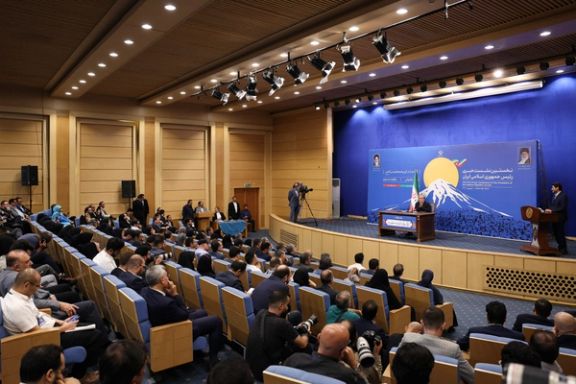
Ahmad, a 52-year-old resident of Ekbatan, a middle-class neighborhood in west Tehran, watched the press conference like many other Iranians. “Overall, I was quite pleased,” he said.
“He doesn’t seem to like stirring up trouble with the rest of the world. This alone is enough for those who voted for him to be content even if that doesn’t make their lives any easier now,” Ahmad told Iran International.
“All they would be hearing today if Jalili had been elected would be ‘the enemy’ and ‘enemies’,” he added.
To those who actively boycotted the elections, and refer to themselves as ‘barandaz’ (proponents of regime change), Pezeshkian’s press conference was only another “regime circus”.
His answers, they argued, only reinforced the view that he is merely a puppet of Supreme Leader Ali Khamenei. They suggested that his statements were dictated, indicating that no significant change should be expected in Iran's troubled society.
“All Pezeshkian says is that ‘the system should not be messed with”! In other words, one must be a servant and obedient to Khamenei and move forward when he agrees,” expatriate political commentator Ali Afshari who called Pezeshkian a “nobody” tweeted.
“He has come to say that society should forget about transforming the system and resisting tyranny, and be content with uncertain economic promises,” he wrote.
Hardliners and ultra-hardliners were also displeased with several of Pezeshkian’s statements, including his remarks that “We have no enmity with the US,” and “We don’t intend to export our Revolution.” His insistence on resolving issues with the Financial Action Taskforce (FATF) and pursuing peace with all non-hostile nations also provoked criticism.
They were also infuriated when a female journalist openly told Pezeshkian that she had to make several detours on her way to the press conference to avoid detention by the morality police for not adhering to hijab regulations.
“Do they still harass [women]?” Pezeshkian asked her. “They weren’t supposed to do it anymore. We will follow up on this so they won’t harass you anymore,” he said good-humoredly when he received an affirmative response. His remarks drew applause from some of those present.
As he often does, Pezeshkian spoke in a modest tone throughout the press conference, often disregarding standard protocols. He made a few gaffes, such as referring to Russia as the Soviet Union while discussing the Ukraine War, and included several jokes to elicit laughter from the audience.
As usual, he also recited verses from the Quran and sections from the sermons of the first Shia imam, Imam Ali, in Arabic when responding to some questions. This practice has been criticized by some Iranians as being overly performative and not suited to presidential discourse.
The stage for the press conference to which around 300 domestic and international media representatives and photojournalists had been invited was very different from similar events in the past.
The president sat at a desk in front of a large background banner with the image of the iconic, snow-clad Mount Damavand and the sun rising from behind it in its center and the images of the current Supreme Leader and the founder of the Islamic Republic, Ayatollah Ruhollah Khomeini on either side at the top.
“I pledge my life to make my promises come true,” it read on one side of the banner. This is a quotation from Imam Ali whose shrine in Iraq Pezeshkian visited last week. Under it, two slogans were printed in large letters: “Reforming Governance” and “Returning to the People”.